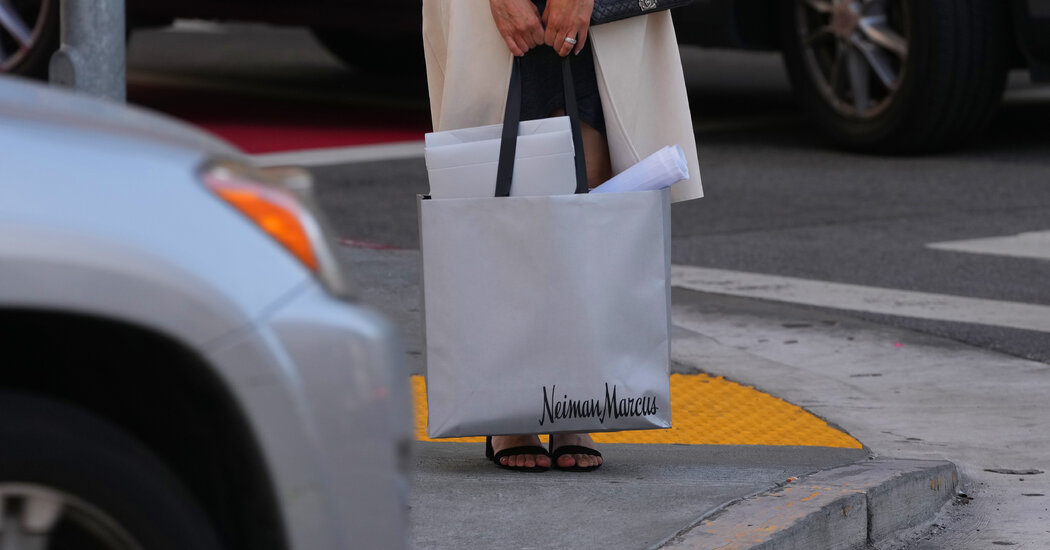In a move that will further consolidate the luxury retail market, the parent company of Saks Fifth Avenue has agreed to acquire Neiman Marcus in a $2.65 billion deal, creating the ultimate upscale department store group, two people close to the negotiations said Wednesday.
The deal, which has been rumored since Neiman Marcus filed for bankruptcy protection amid the pandemic, comes just over four years after Saks bought the license to the Barney’s name following that group’s bankruptcy. It also follows a spate of luxury e-tail failures, including those of FarFetch and Matches.com. Saks is owned by HBC, a retail conglomerate that bought the U.S. chain in 2013 — the year after HBC also acquired Lord & Taylor.
The Neiman Marcus acquisition will make Saks Global, as the new group will be called, the dominant player in its market, with a total of 75 stores (including two Bergdorf Goodman stores) and 100 off-price stores. The new group's only real rivals in the United States are Macy's, which also includes Bloomingdale's, and Nordstrom. It will be run by Marc Metrick, the current CEO of Saks and Saks.com, one of the sources said.
As part of the deal, Amazon will take a minority stake in Saks Global, the people said. HBC, which also owns Canadian department store chain Hudson's Bay, is financing the acquisition with $2 billion raised from existing investors. Affiliates of investment firm Apollo Global Management are providing $1.5 billion in debt.
The Wall Street Journal previously reported on the deal.
The two retailers have long been seen as potential matches, given their overlapping high-end customer bases. But both have struggled financially, posing significant complications to their attempts to merge over the years.
“There will undoubtedly be efficiencies,” said Robert Burke, founder of a luxury retail consultancy. “Retail has been slow recently and perhaps there will be more investment in both stores than in the past. The real question is how do the brands respond to that? Particularly the LVMH and Kering brands.”
LVMH is the luxury conglomerate that owns Dior, Louis Vuitton and Fendi, among others; Kering owns Gucci, Balenciaga and Saint Laurent. Both groups sell their products in Saks and Neiman Marcus stores, but are increasingly focusing on attracting consumers to their own stores and e-commerce sites.
Smaller independent brands, on the other hand, who have long relied on department stores to reach their customer base, Consumers across the country will have even less choice and power in their negotiations with stores.
According to an insider, there are no plans for the time being to close stores of either brand, even though both brands are active in many of the same markets.
The Federal Trade Commission has been keeping a close eye on consolidation among fashion retailers. In April, the commission decided to block the planned acquisition of Capri (the group that owns Michael Kors, Versace and Jimmy Choo) by Tapestry (owner of Coach, Kate Spade and Stuart Weitzman). The commission said the planned consolidation would harm competition between brands. The case is expected to go to trial in September.
As for the Saks-Neiman deal, Mr. Burke said, “I'm sure they'll look at it very closely.”

